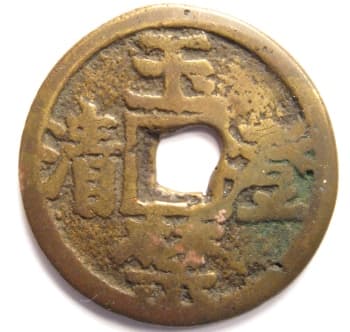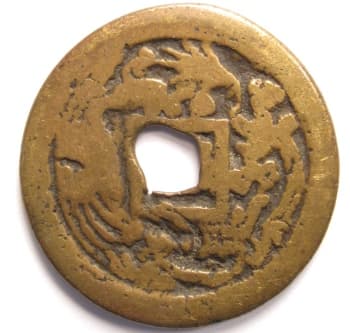
Unknown Charms
I am seeking your assistance in helping me identify and
better understand a few of my old charms, coins and tokens.Please contact me if you can provide information on any of the following.
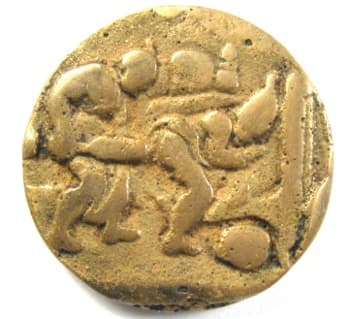
This is a very unusual Chinese coin or charm which appears to show a man and a woman engaged in some type of sexual activity.
The charm has no Chinese inscription and is unlike any of the Chinese marriage charms with which I am familiar.
This may simply be an erotic bedroom scene.
Or, perhaps, the couple is just involved in some type of harmless activity which is not obvious to this observer.
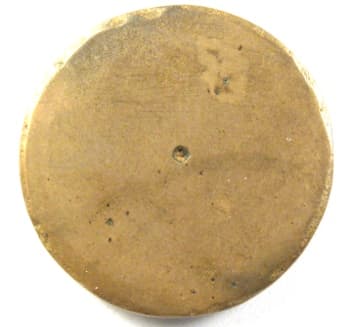
The reverse side is smooth with only a small spindle depression in the center.
The charm has a diameter of 28.5 mm and a weight of 14.7 grams.
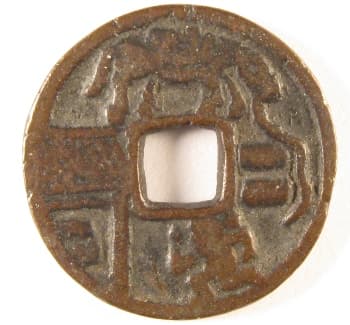
This is another unusual and interesting charm.
A horse with long reins is shown above the square hole.
Below the square hole is a man who appears to be running toward a hut or house at the left.
This may be a Japanese charm since I am aware of Japanese charms which depict a monkey dragging a horse.
However, this charm seems to have a different theme.
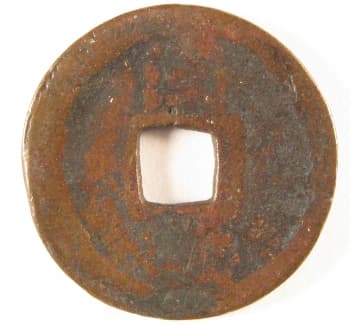
The other side of the charm appears to have two Chinese characters with one character above the square hole and the other below.
There is considerable wear on the charm and I am unable to discern what these two characters are.
The charm has a diameter of 24 mm and a weight of 5.9 grams.
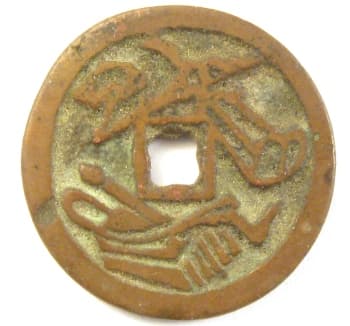
The symbols above the square hole on this charm appear to be a ruyi sceptre and a Chinese halberd with its shaft extending downwards into a vase.
There appears to be a writing brush at the lower left corner of the square hole.
However, I am unable to identify the other symbol or symbols displayed below the square hole.
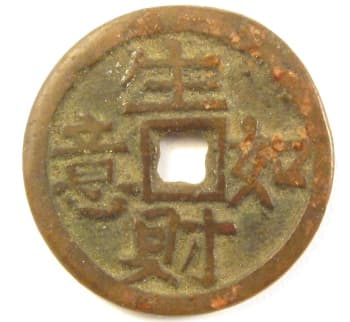
For reference purposes, this is the obverse side of the charm.
The inscription reads sheng cai ru yi (生财如意) which means "become wealthy according to your wishes".
This charm is discussed at Auspicious Inscriptions.
The charm has a diameter of 21.3 mm and a weight of 3.6 grams.
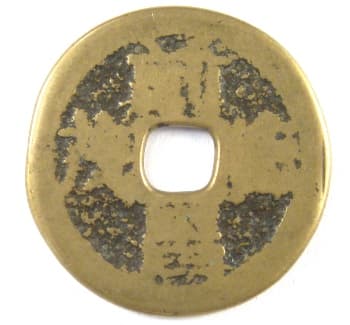
This Chinese token is displayed at Chinese Tokens and has clearly seen much use. It was probably cast in Jiangsu Province in the middle to late 1800's.
Because of the wear, I am still trying to decipher the characters.
The character at the top looks like qian (前) meaning before, front, forward, etc.
The character to the left of the center hole appears to be mao (茂) which means "rich and splendid".
I cannot make out the characters to the right and below the center hole.
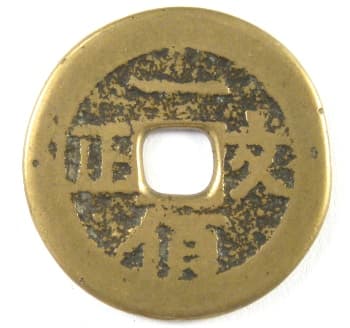
For your reference purposes, this is the other side of the token.
The inscription reads yi bai wen zheng (一佰文正) which means "one hundred cash coins only".
The token is 27 mm in diameter and weighs 6.7 grams.
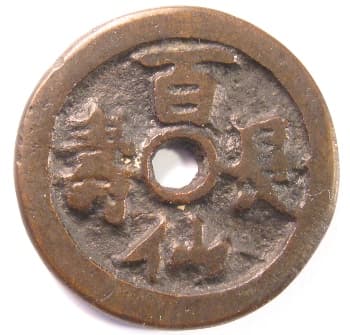
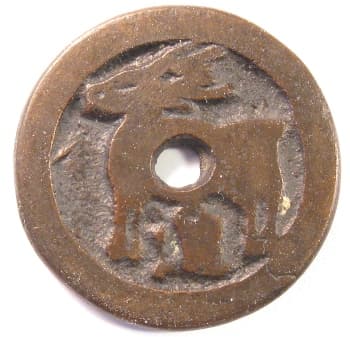 The reverse side of this piece
depicts a deer.
The reverse side of this piece
depicts a deer.